UK 'could pay for single market access'published at 22:46 GMT 1 December 2016
The UK may pay to get the "best possible" single market access, Brexit Secretary David Davis says.
Read MoreBrexit questions start Commons day
Business statement lays out agenda for week ahead
Backbench business debates for rest of day
Topics include transgender equality and UK fishing industry
Peers start at 11am with questions
Afternoon's debates include Brexit and social care
Kate Whannel, Patrick Cowling and Claire Gould
The UK may pay to get the "best possible" single market access, Brexit Secretary David Davis says.
Read More House of Lords
House of Lords
Parliament
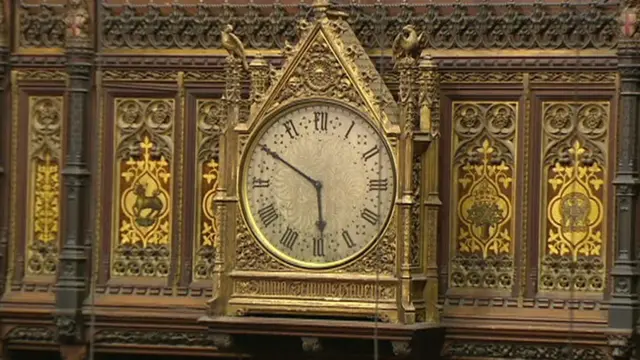
The debate finishes and peers adjourn for the day.
The House of Lords returns tomorrow at 10am for a debate led by the Archbishop of Canterbury on the "shared values underpinning our national life".
Online safety debate
 House of Lords
House of Lords
Parliament
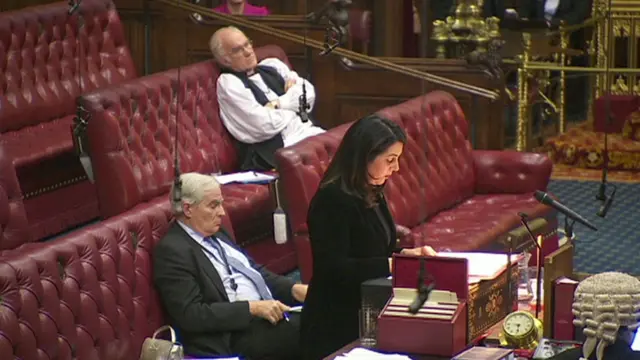
Baroness Howe receives plenty of praise from her fellow peers for her persistent work on this issue.
Labour's Baroness Thornton says that when the history of online child protection is written, there will be a "glorious chapter" devoted to her efforts.
Responding to the debate, Minister for Internet Safety Baroness Shields tells peers that the filter regime is "in no way in jeopardy".
She acknowledges that there has been uncertainty on the matter, but assures members that the government will amend the Digital Economy Bill to allow content filters.
 House of Commons
House of Commons
Parliament
The adjournment debate comes to an end and with it the day in the House of Commons.
MPs return tomorrow for consideration of private members' bills from 9.30am.
Adjournment debate
 House of Commons
House of Commons
Parliament
Communities and Local Government Minister Marcus Jones says the government is "100% committed" to being open to "innovative bottom-up" proposals that will improve local services, enhance accountability and deliver financial sustainability.
Online safety debate
 House of Lords
House of Lords
Parliament
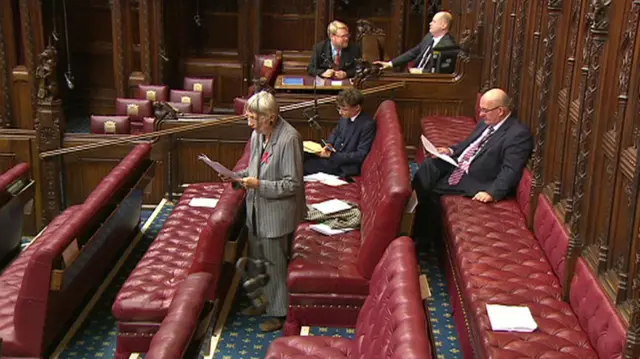
Crossbencher Baroness Howe notes that in 2015 the then Prime Minister David Cameron said that online content filters did conflict with EU regulations but that the UK had secured an opt out and that a law would be made allowing ISPs to establish such filters.
She adds that in December 2015 then minister Baroness Shields said the legislation would have to be in place by December 2016.
Baroness Howe informs peers that today is the first day of December 2016 - "the deadline is upon us".
She notes that the government has promised to add an amendment to the Digital Economy Bill allowing for content filters to be used but this means the measure won't become law until March 2017.
Does the date no longer matter, she asks.
Adjournment debate
 House of Commons
House of Commons
Parliament
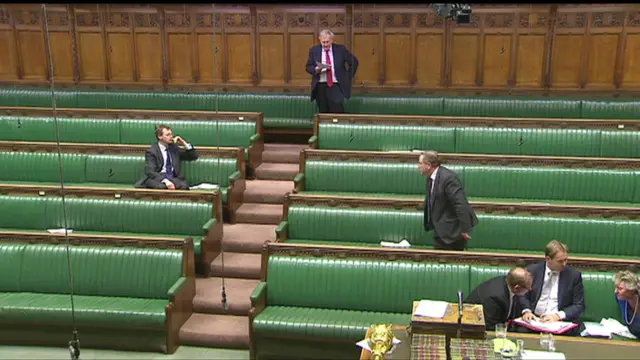
Christopher Chope and Simon Hoare spar in the chamber
The adjournment debate gets a bit heated after the Conservative MP for North Dorset Simon Hoare intervenes to oppose Mr Chope's argument.
When he tries to intervene again, Mr Chope refuses to give way which prompts Mr Hoare to raise a point of order with the deputy Speaker - this procedural device means he can pause the debate to raise a problem with the chair of the debate.
In his point of order, Simon Hoare asks if it is in order for Mr Chope to refuse to take his intervention when the debate addresses his constituency too.
The deputy Speaker says that as it is Mr Chope's debate it is up to him.
Christopher Chope says that the "spurious intervention" by Mr Hoare demonstrates that he is "embarrassed that he is not on top of the facts".
Adjournment debate
 House of Commons
House of Commons
Parliament
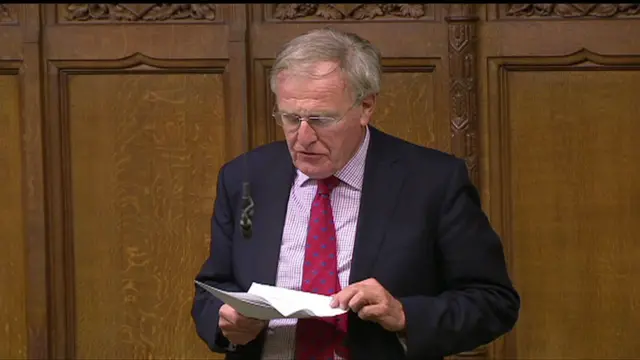
Conservative MP Christopher Chope is now moving the day's adjournment debate which is on the proposed abolition of Christchurch and East Dorset councils.
The nine councils that cover Dorset have been running a consultation on reducing the number of councils to two.
The proposals involve creating one council for the urban area around Bournemouth and one for the rest of the county.
The Dorset councils believe they can save money and prevent service cuts.
A light is shone on the role of the government whips, those who aim to keep their MPs in order, in a play that has returned to the stage, four years after a sell-out run.
Daily Politics reporter Mark Lobel sees political parallels between the Labour government of the 1970s with the current Conservative administration, with both grappling with European and devolution issues by leaders with slender majorities in the Commons.
Future of the fishing industry debate
 House of Commons
House of Commons
Parliament
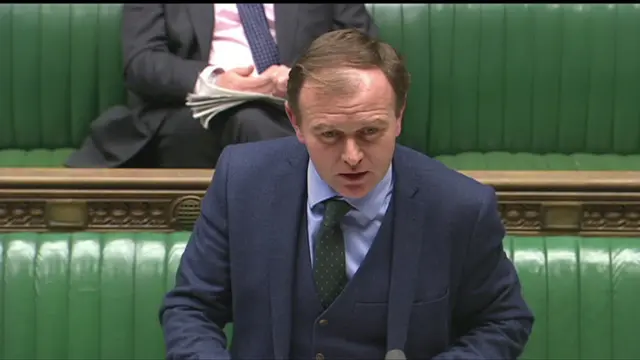
Environment, Food and Rural Affairs Minister George Eustice responds to the debate and joins others in paying tributes to those who have lost their lives at sea in the industry as well as their friends and families.
Mr Eustice says the government is "committed" to acting on the decision made by the British people in the referendum, and in withdrawing from the Common Fisheries Policy in favour of a "new fisheries regime".
As an independent coastal state, he says, the UK would be fully responsible under international law for waters in our exclusive economic zone and the management of those waters within it - including fisheries.
 House of Lords
House of Lords
Parliament

We now come to the final debate of the day - a debate about child safety online and EU regulations.
The EU Connected Continent regulation makes all EU internet traffic abide by net neutrality principles.
The principle of net neutrality is that an ISP (internet service provider) cannot favour certain websites or services over another in speed.
The government intends to introduce internet censorship to protect children from seeing inappropriate content online; however there are concerns that this would conflict with the EU Connected Continents legislation.
Future of the fishing industry debate
 House of Commons
House of Commons
Parliament
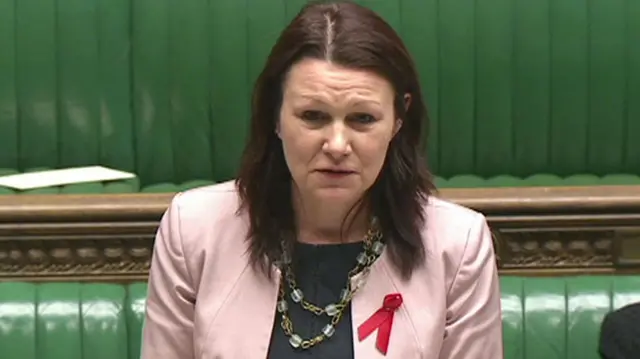
Shadow minister Sue Hayman asks the government what transitional arrangements the government will put in place to see the industry through the UK leaving the EU.
Ms Hayman also says it is important that the government makes headway on the future of our trading relationships, telling MPs that around 80% of the British catch is exported primarily to the EU.
As this is the case, she says that negotiations need to take into account the effect a "less than ideal" trade deal could have on the industry.
Social care debate
 House of Lords
House of Lords
Parliament
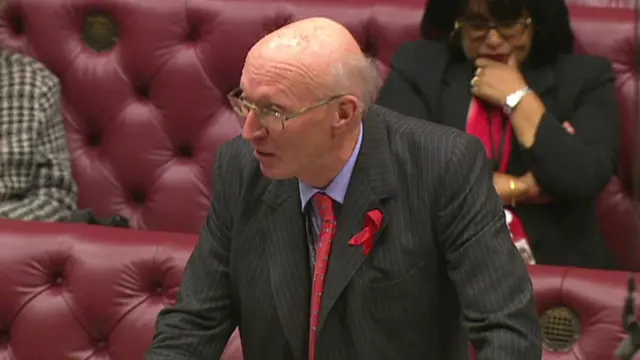
Health Minister Lord Prior of Brampton begins by admitting that the debate is "not easy to respond to".
There is no question that adult social care is under "huge pressure" he says, but urges peers not to become depressed.
He argues that one way of easing the pressure is better integration between health and social care. However, he notes many governments have tried to facilitate such integration - not always with success.
It looks bleak, he says, but assures the House that he has not given up hope.
Lord Prior says there is currently a "tough financial background" but disagrees with those who have argued that this will make dealing with social care harder.
He argues that change will only happen if "organisations are forced to change in order to survive".
Future of the fishing industry debate
 House of Commons
House of Commons
Parliament
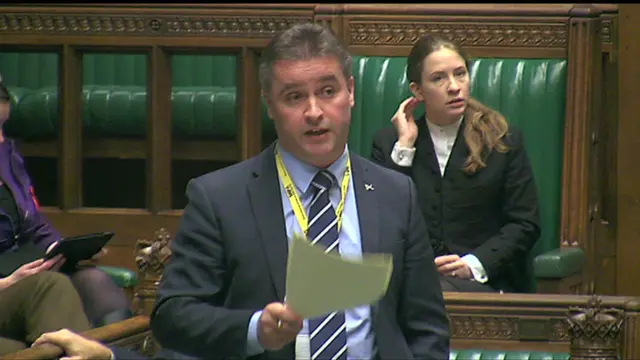
Angus MacNeil is summing up the debate for the SNP.
Mr MacNeil tells the minister to stop the "overzealous" actions of the border agencies that are working against the economic interests of the west coast of Scotland and Northern Ireland.
"For goodness sake," he says, "let our boats go to sea".
BBC Today in Parliament editor tweets
Allow X content?
This article contains content provided by X. We ask for your permission before anything is loaded, as they may be using cookies and other technologies. You may want to read X’s cookie policy, external and privacy policy, external before accepting. To view this content choose ‘accept and continue’.
Future of the fishing industry debate
The UK’s fishing industry is regulated at an EU level by the Common Fisheries Policy (CFP) and managed in England by the Marine Management Organisation (MMO), Marine Scotland in Scotland, Natural Resources Wales in Wales and the Department of Agriculture and Rural Development in Northern Ireland.
Under the CFP, every year, the European Commission proposes a Total Allowable Catch (TAC) for each commercial species for each area within the EU 200-mile limit.
TACs are then shared between EU countries in the form of national quotas. The TACs are agreed by the Council of Ministers at the Agriculture and Fisheries Council – normally with some increases from the original proposals – at the end of the year.
Future of the fishing industry debate
 House of Commons
House of Commons
Parliament
Conservative MP Kevin Hollinrake muses on the historical net of fishing conventions that predate the Common Fisheries Policy (CFP), and gives some context for the agreements and the rights they gave to other European nations.
He says that the dream of "a brand new clean slate" of domestic fishing policy may be more complicated to achieve than many think.
Will the CFP revert to the 1964 fishing convention? Will that in turn then revert to the 19th century conventions?
Mr Hollinrake wishes the minister well in "untangling these legal knots".
Social care debate
 House of Lords
House of Lords
Parliament
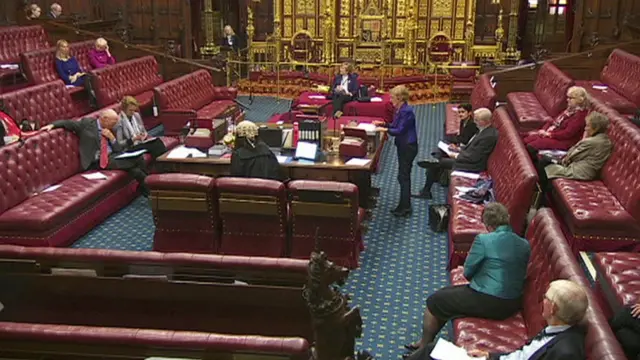
Labour's Baroness Wheeler responds to the debate.
She quotes a Guardian article that estimate a social care rescue package would cost £1.3bn - "the same amount the Autumn Statement allocated for roads".
Despite the "commitment of providers", she says social care is failing and needs "long term funding".
Future of the fishing industry debate
 House of Commons
House of Commons
Parliament
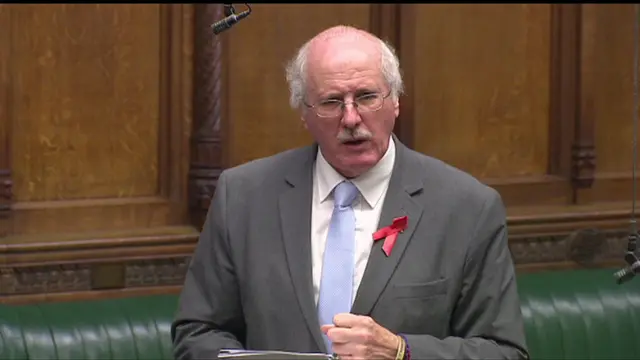
DUP MP Jim Shannon says that a "huge step forward" in addressing the problems faced by the fishing industry was taken on 23 June when the UK voted to leave the EU.
He says that he has "every confidence" that in his local fishing town Portavogie "every man, woman, and unborn child" voted to Leave the European Union.
Mr Shannon warns the minister that the fishing industry will not want the Common Fisheries Policy to be replicated in UK law, as he blames EU red tape on the decline in fishing in his constituency.
Social care debate
 House of Lords
House of Lords
Parliament
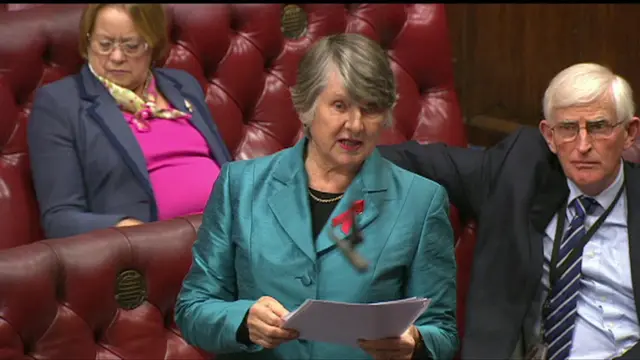
The Lib Dem spokesperson on health Baroness Walmsley speaks on how the pressures on social care lead to pressures on hospitals.
Delays in discharge, due to a lack of care at home, and the inappropriate use of A&E by vulnerable people who can't get care elsewhere all add to the burden on the NHS, she says.
"Successive governments have failed to grasp the nettle" of properly provisioned social care, says Baroness Walmsley.
As a gardener who understands that "even nettles have value", she urges the government to grasp the nettle of what needs to be done.